Student case studies
Internship case studies

Damien Thornber
Migration Health and Development Internship, Dhaka, Bangladesh
I completed an internship under the guidance of the Chief of Mission and direct supervision of the Chief Migration Health Officer, IOM in Dhaka, Bangladesh. In that role, I had the following duties and responsibilities:
- Supported the development of quality concept papers, presentations, and reports by researching and reporting on information and topics assigned by the Chief Migration Health Officer;
- Contributed to data collection and analysis and in writing reports and preparing or editing presentations on migration and international health issues and topics;
- Assisted in the planning and organisation of exhibitions, meetings, conferences, seminars and workshops when needed; and
- Performed other relevant duties as assigned.
At the end of the internship I understood research on the health rights of Bangladeshi migrant workers which was used as a pamphlet for IOM internationally. I also wrote my internship report on the migration vulnerabilities of Bangladeshi women with a special emphasis on the public health risks. The opportunity to work with such a incredible organisation that are engaged in such great human tights work was especially rewarding. I enjoyed the cultural experiences, the food and the travel as well as working with such an experience and multi cultural team.
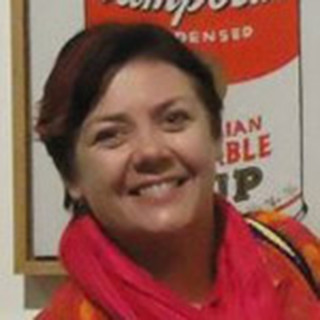
Lisa Craig
Association for Services to Torture and Trauma Survivors (ASeTTS), Perth
As a mid-career professional it was a challenge for me to fully inhabit the space of an intern in an unfamiliar agency and with so much to learn! On my first day I felt a complex mix of excitement and apprehension. “What if they ask me to make coffees and photocopy for weeks on end?, what if I discover I’m not really suited to this work?, what if I really don’t know what I’m talking about?”
My internship with ASeTTs marked a personal and professional renewal for me, creating a lovely dynamic between theoretical framework and lived experience and providing me with a host of excellent guides on the way. I was located within the research and training team and a great deal of care was taken to set goals for the internship that provided exposure to the practice of human rights education and offer me the chance to develop my own teaching materials. I also went on the deliver a conference paper on behalf of the organisation and continue to inform my current practice from that amazing experience.
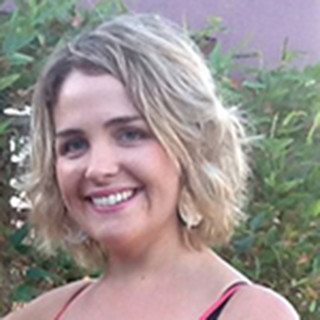
Giselle Larkins
Same-Sex Domestic Abuse Group (SSDAG), Communicare Perth
I completed my internship at a non-government organisation, Communicare. Part of my internship included working within the Same-Sex Domestic Abuse Group (SSDAG) to conduct research into domestic abuse within same-sex relationships which was later presented at the 2013 National Men’s Health Gathering. I also formulated an ‘SSDAG Manual’ to aid support workers employed within the field of same-sex domestic abuse to understand support needs within the LGBTQQI community.
Following my internship placement, I wrote a report comparing the rights of LGBTQQI Australians with their international counterparts. I considered the prevalence of domestic abuse within same-sex relationships and coupled this with an analysis of why traditional domestic abuse theories fail to fully encapsulate this occurrence. Finally, I reflected upon the strict equal opportunity workplace ethos of Communicare and considered how this may specifically impact LGBTQQI employees in endeavours such as coming out in the workplace.
I really enjoyed the opportunity to practically apply theoretical concepts that we had explored within our core Masters units to the everyday lived experiences of LGBTQQI individuals. The diversity of Communicare’s programs also enabled me to experience working at multiple offices with numerous staff and in arenas other than LGBTQQI rights. Through exploration in the workplace, I understood more about myself and what motivates me as a human rights advocate. My internship also offered an alternative, national NGO experience to my previous volunteerism with grass-roots operations.
Dissertation case studies
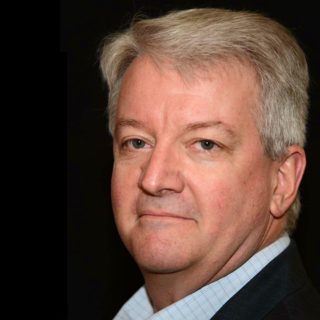
Richard Yaxley
‘We are never free: dialogues and exegesis on freedom of expression’
As a writer of fiction, I look to craft stories which reveal our human propensity for self-deception; the ongoing reconfiguration of whatever might be the truth. This led naturally to my dissertation topic, the notion that our speech is never free; that – to summate Holquist’s assertion – censorship simply is and, as such, our capacity to claim one of our most fundamental human rights is consistently compromised. My work acknowledged Foucault’s world-view of actions and reactions as necessary and unavoidable aspects of our perpetual struggle for power, and debated new and traditional models of censorship in a creative format.
I chose to write my dissertation as a series of interwoven dialogues between characters because I felt that argument and counter-argument would more amply reveal the difficulties that can occur with presuppositions around freedom of expression. These dialogues were supported by an exegesis which explicated the theoretical concerns of my work. The most difficult – and, ironically, rewarding – aspect of this approach was locating academic rigour within the creative process, and doing justice to both. I feel very fortunate that I was so ably supported by the flexible thinkers of the Centre for Human Rights Education.
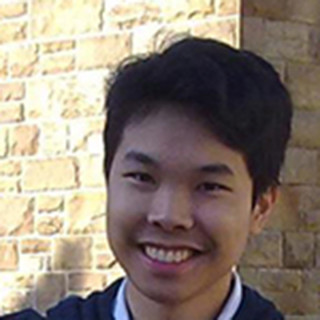
Ken Matahari
‘Imprisoned but Free: the Story of Indonesia’s First Atheist in Post-Reformasi Indonesia and the Paradox of Democracy’
The title of my dissertation was ‘Imprisoned but Free: the Story of Indonesia’s First Atheist in Post-Reformasi Indonesia and the Paradox of Democracy’. My research asked the fundamental question of whether or not and to what extent democracy enhances freedoms. Using Indonesia as a case study, I focused on the story of Alexander Aan – Indonesia’s first openly atheist man who is now serving 2.5 years prison term after his Facebook posts on Mohammad and the existence of God stirred up a national debate about the limits to freedom of religion and freedom of speech in the world’s third largest democracy.
Completing this research project was the most rewarding aspect of the Master of Human Rights course. Not only did I learned a lot of important skills such as how to conduct academic research, I also learned about myself, developed my passion, and learn what I believe in at a deeper level. I also had the privilege of working with two passionate, brilliant academics who constantly inspired me and empowered me to pursue my research interests despite the fact that it was a difficult new topic.
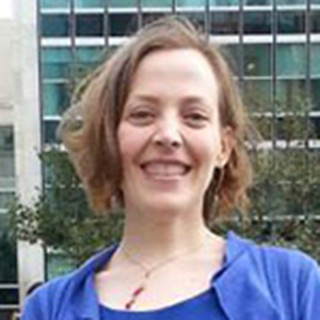
Laura Kittel
‘Healing Heart and Mind: The pursuit of human rights in engaged Buddhism with reference to Thich Nhat Hanh, Aung San Suu Kyi, and the Dalai Lama’
My topic evolved out of an interest in how personal faith informs social activism, and was further motivated by the uprisings in Burma and Tibet in 2007 and 2008 respectively, the former of which occurred before I wrote and the latter while I was writing my thesis. I wanted to explore the role of Buddhism in these uprisings and the lives of leaders such as Aung San Suu Kyi and the Dalai Lama, as I find them to be particularly inspiring people. After finishing, I published a shorter version of my thesis in The International Journal of Human Rights. I sought to use my knowledge and passion for the causes of these leaders and their people by working for one of them, His Holiness the Dalai Lama, at the International Campaign for Tibet in Washington, D.C. Completing my dissertation was an honour and one of the greatest joys of my life. Now I am again working on theory as a PhD student through the Centre for Human Rights Education, with faith in my ability to make a positive contribution to the lives of others.
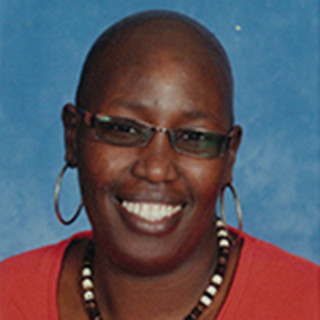
Chemutai Glasheen
‘Get Under My Skin! Of Fiction and Human Rights’
My thesis was situated in the context of the promulgation of a new constitution in Kenya in 2010. Central to that constitution was Kenya’s Bill of Rights which guarantees fundamental freedoms and rights for every individual. I started with the proposition that people need to be educated on what their rights are, if these rights are to be promoted and defended. Based on this, I posed the question, “how can fiction be used to teach about human rights in Kenyan secondary schools?” The research question was answered by means of a creative production and an exegesis, which together, will made a contribution to human rights themed literature emanating from East Africa, a region that continues to be under represented in world literature. The short stories I wrote were targeted at secondary school students. Whilst there is significant work of fiction that touch on human values, dignity and other social and political issues, very little has been written specifically to target the young people with the objective of raising human rights awareness among them. My research revealed a paucity of both academic and creative work, and I am now further developing my ideas in my Ph.D at Curtin University.
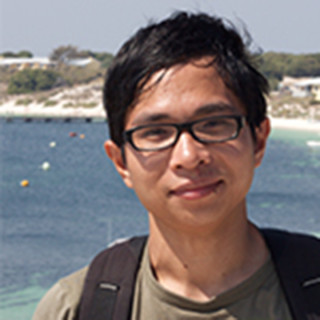
Bablu Chakma
‘Self-determination of the Jummas of Chittagong Hill Tracts: A Journey through the History’
My masters dissertation entitled “Self-determination of the Jummas of Chittagong Hill Tracts: A Journey through the History” was an historic analysis of the right of self-determination of indigenous Jummas in the Chittagong Hill Tracts (CHT), Bangladesh. Being an indigenous person, I have always been very keen to find the root causes behind the oppression, exploitation and subjugation indigenous peoples around the world have been facing for centuries. On that quest, through an analysis of historic evolution of self-determination of the Jummas, my dissertation highlighted that the ongoing injustices and discriminations experienced by Indigenous peoples are rooted in the sheer reluctance of the states to embrace self-determination of indigenous peoples within the state system.
Working on the dissertation helped me obtain more knowledge about both theoretical and practical aspects of the right of self-determination and other issues interwoven with the lives of indigenous peoples in the CHT and beyond. The dissertation gave me the opportunity to work under the supervision of a scholar in this field and brought me closer to the works of renowned scholars. It also gave me the opportunity to feel the beauties and pains of indigenous peoples more. All these have inspired me to pursue further work and studies with indigenous peoples.
